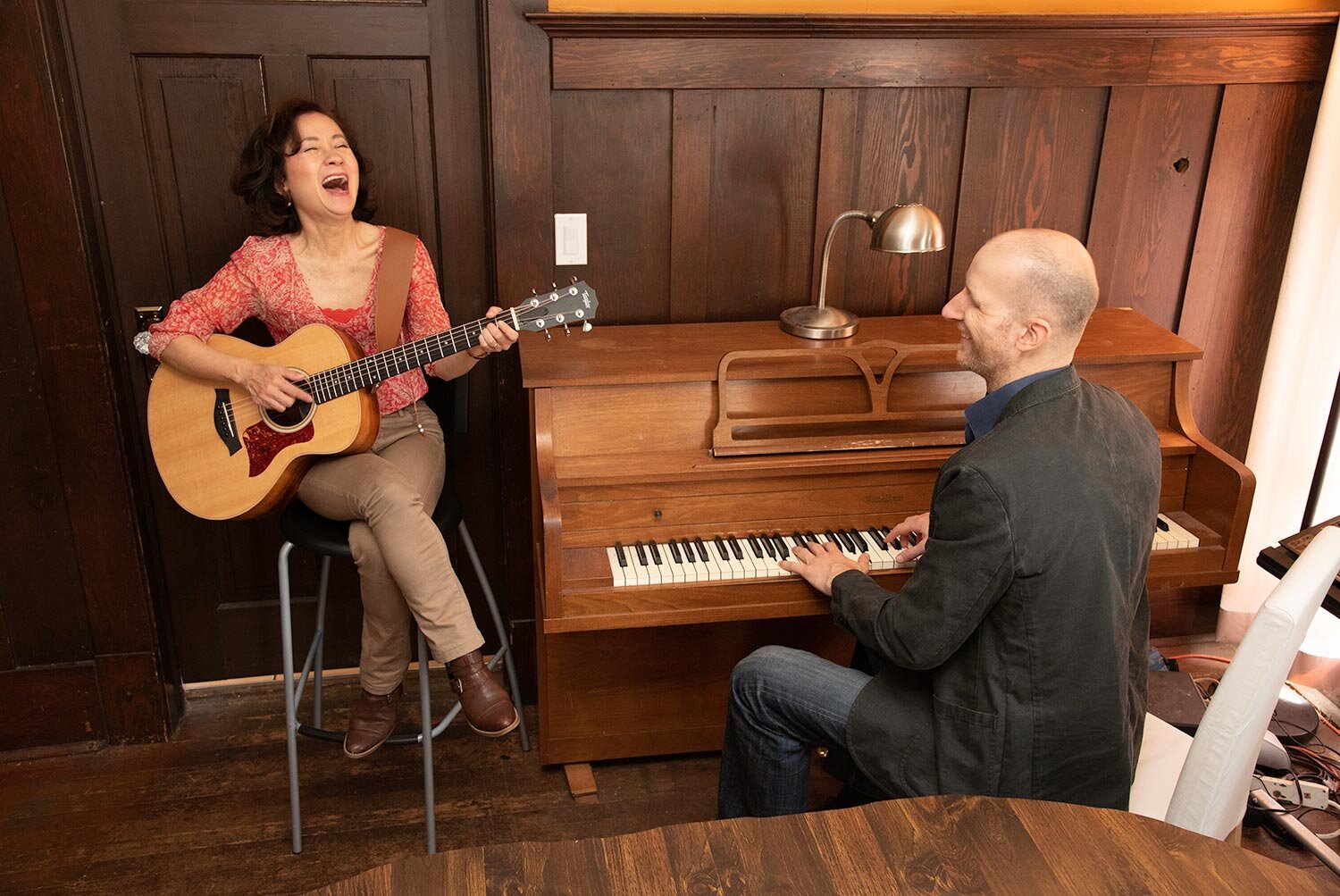
The Method
The Method
Current Vocal Science + Speech Level Singing
Over the years, I’ve experimented with many modifications to my Speech Level Singing (SLS) training, as my knowledge beyond SLS grew.
I call the the result the CSI Method (I know…)
The CSI Method:
What does CSI stand for?
Here’s what CSI stands for—at least when you’re not watching crime drama reruns 🤦♂️:
Connect
Sustain
Improve
How does the CSI Method work?
The method uses carefully tailored exercises combined with song work to achieve the following key goals:
Connect:
First, we get you to sing high notes that might normally be sung in head voice or falsetto voice (i.e. upper range), but with your vocal folds connecting efficiently (as opposed to squeezing too hard, or not connecting much, at all—i.e. breathy tone).
This state of producing notes above normal chest range, but with the vocal folds still contacting efficiently is called ‘mix’ (and also ‘belt,’ which I consider to be a sub-type of mix). Then we connect your mix voice down to your chest (lower range) voice, as well as up to your head voice.
Sustain:
Second, we develop how long you can sustain mix coordination via repeated notes, then sustained notes, on different vowels.
Improve:
Once we are able to sustain pitches in mix, we work to improve the quality and ease of these notes, on exercises and on songs.
Simultaneously, we are always doing warm-ups that strive to improve your current mix range, as well as your overall range (including head voice), as well as the volume levels you can access within your mix singing, exploring both louder and softer edges of what’s possible, week to week.
We also work on improving vocal style, vocal effects, and performance, alongside technical skill-building.
FAQ:
What about ‘breathing?’ etc.?
There’s likely a place for other important concepts you don’t see listed above (e.g. breathing, relaxation, posture, vocal health) as well, that will be addressed as needed. I like to research every concept potentially applicable to great singing and performing, and then condense things into simple frameworks that get most singers reliable results, most of the time.
And for the times that we need to go outside the box… we can do that, too.
Book a short free call
A short friendly chat to answer any questions you may have about lessons here.



